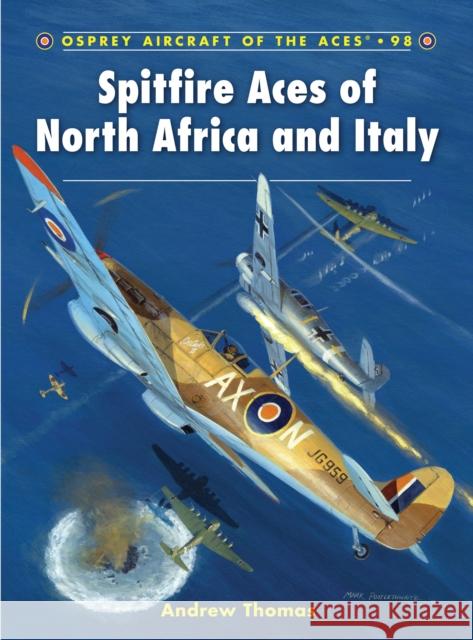Spitfire Aces of North Africa and Italy » książka
Spitfire Aces of North Africa and Italy
ISBN-13: 9781849083430 / Angielski / Miękka / 2011 / 96 str.
The Spitfire was the most iconic and famous British fighter of World War II and was first deployed to Egypt in the spring of 1942 as German success in North Africa reached its zenith. Although few in number, in their early battles with the Luftwaffe the RAF and South African Spitfire squadrons made an immediate impact and in contributed to the successful build up to the Battle of El Alamein and in the subsequent advance over the desert. Soon afterwards, further Spitfire squadrons, many led by experienced aces form Europe who soon began adding to their scores, were landed in French North Africa. In the bitter fighting that followed, the units wrested air superiority from the enemy in the skies above Tunisia until the final enemy surrender in May 1943. The RAF, RCAF, RAAF and SAAF Spitfire squadrons then played a huge part in covering the Allied landing in Sicily and in supporting the island's subsequent capture. Based in captured airfields these units then also covered the Allied landings at Messina and Salerno as the Italian campaign began. They were to see bitter air fighting against a determined Luftwaffe and a significant number of pilots became aces whilst other aces added to their scores. The Spitfire squadrons were heavily engaged in the fighting following the landings at Anzio and also in the long and bloody battle at Cassino. Among the many aces that commanded squadron here was the now Sqn Ldr Duke, who took his score to 26 destroyed. During the summer of 1944 Italian-based Spitfires supported the Allied landings in Southern France - Operation Dragoon - and also flying sorties over Yugoslavia in support of Tito's partisans. The large number of Spitfire squadrons continued in action against the enemy into 1945, though as the Luftwaffe had been heavily defeated and largely withdrawn to Germany, encounters were few and far between. Close to 100 aces either attained this status or added to their scores when flying Spitfires during the North African and Italian campaigns whilst many more aces flew the type in action there, though without making any claims.











